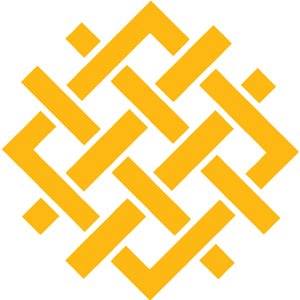Cause Area
Primary Sectors
Secondary Sectors
Geographies Served
Programs
-
Sustainable Cities Programme
WRI India's Sustainable Cities programme focuses on promoting compact and connected growth to create efficient and well-designed cities. This approach aims to lower residents' ecological footprint while providing equitable access to opportunities and essential services. Sustainable Cities addresses long-standing urban challenges through 10 integrated solutions. It employs applied research, tools, hands-on advice, and leverages its network of Indian and international experts to accelerate transformative urban initiatives. The goal is to transform Indian cities into thriving, equitable, and low-carbon places that benefit both people and the planet.
-
Climate Programme
WRI India collaborates with businesses, policymakers, and civil society to address climate change by both mitigating its effects and supporting communities in adapting to its impacts. It establishes reliable performance tracking systems at the national, policy, and industrial levels to assess progress in achieving domestic climate, energy, and development objectives. Its greenhouse gas accounting frameworks assist businesses, cities, and the country in measuring and managing their greenhouse gas emissions. WRI India has initiated a special series called "Climate-smart Covid-19 Recovery" that aims to highlight the efforts of individuals and communities in combating the dual challenges of COVID-19 and climate change. Through stories, films, and blogs shared by contributors from urban and rural areas, this series will showcase how people are responding to these threats and implementing climate-smart survival strategies.
-
Sustainable Energy Programme
StateStates
West Bengal
Assam
Jharkhand
Maharashtra
WRI India's energy programme aims to ensure sustainable, affordable, and reliable electricity access for all. It conducts research, analysis, and stakeholder engagement to identify barriers and develop solutions for enhanced energy access. The programme focuses on end-user demand and develops tools and frameworks to support the adoption of distributed renewable energy solutions, especially in rural and underserved areas. The lack of reliable electricity in healthcare facilities hinders service delivery. To address this, WRI partnered with HSBC India to provide integrated clean energy solutions to healthcare facilities in Jharkhand, Maharashtra, West Bengal, and Assam. Working with organisations like the Catholic Health Association of India, WRI India implements decentralized renewable energy interventions in these facilities.
-
Business Programme
WRI India collaborates with the private sector to promote sustainable development and economic growth. It forms partnerships with numerous businesses in India and offers support in adopting strategies aligned with sustainability goals. Through its India Greenhouse Gas Programme, it develop tools and guidance for corporations to measure and reduce emissions in their operations and value chains. WRI India also advocates for best practices that integrate environmental sustainability across all aspects of business operations, products, and services. By working with the private sector, it aims to drive positive environmental outcomes and encourage sustainable practices throughout the business community.
-
Hydrogen Programme
WRI India recognizes the potential of hydrogen as a clean fuel and aims to engage with various stakeholders to support the production, supply, and distribution of hydrogen across multiple sectors. To assess the economic viability of hydrogen fuel cell (HFC) buses compared to electric and diesel buses, WRI India has developed the H2 TCO EValuator model. This model takes into account capital expenditure (CAPEX) and operational expenditure (OPEX) to evaluate the cost of ownership per kilometre travelled over the lifetime of the buses.
Registration Details
-
PAN Card
AAATI9236J
-
Registration Number
IN-DL06592882489369J
-
CSR Form 1
Not Available
-
80G
AAATI9236JF20213
-
12A
AAATI9236JE20116
-
FCRA
231661724
About
-
Headquarters
New Delhi, Delhi
-
Since
2011
Impact
WRI India puts big ideas into action to build transformative solutions to protect the earth, promote livelihoods, and enhance human well-being.
Vision and Mission
WRI India envisions an equitable and prosperous planet driven by the wise management of natural resources, aspiring to create a world where actions of government, business and communities combine to eliminate poverty and sustain the natural environment for all people.
Political & Religious Declarations
-
Political Affiliation
-
Religious Affiliation
Location
-
Offices in Cities
Other Details
-
Type
Non-profit
-
Sub Type
Trust
Website
Technology Adoption
-
SOC 2 Compliant
No
-
Financial Management
-
Beneficiary Management

